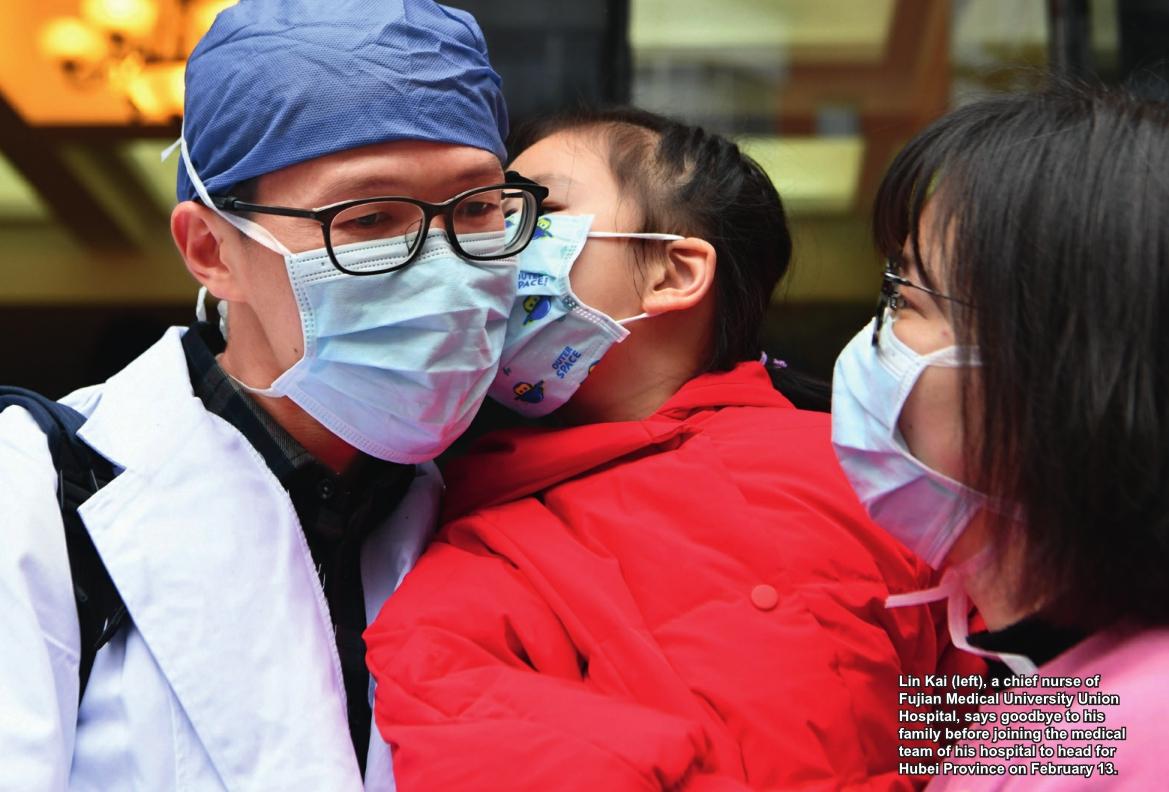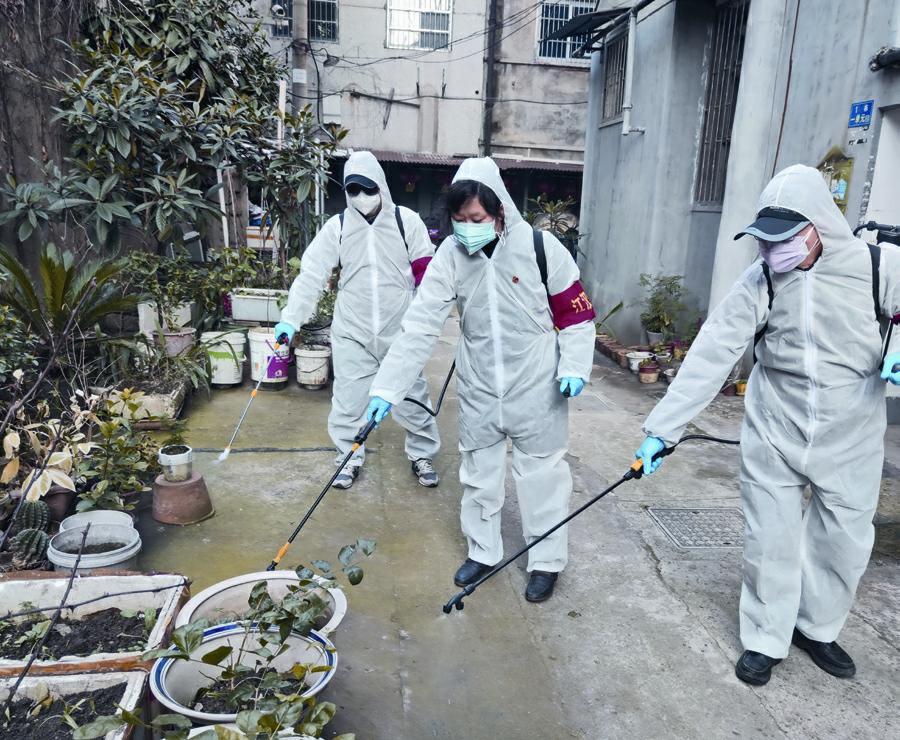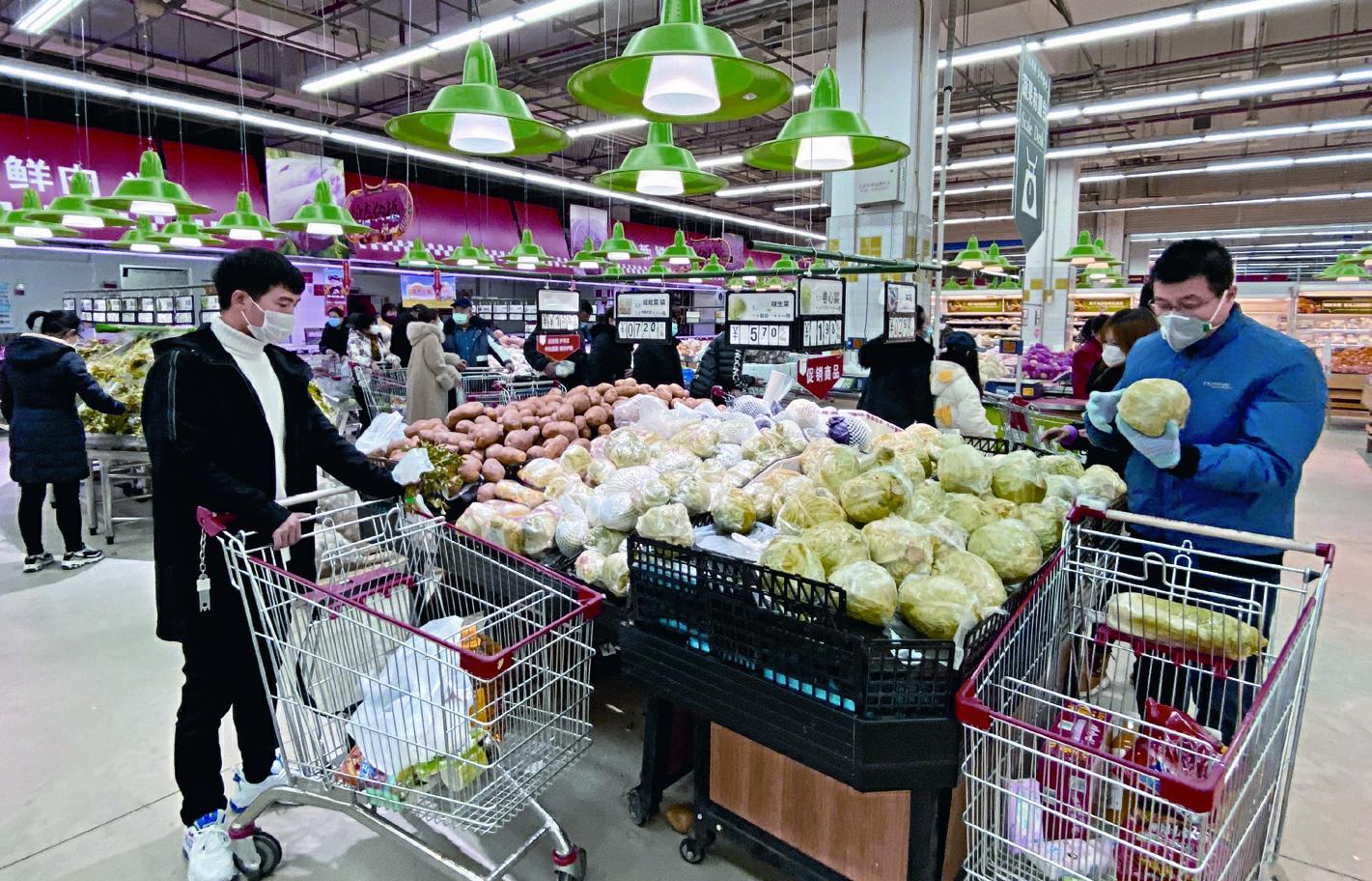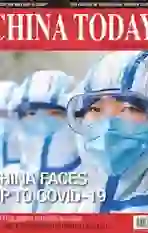Rising Above and Standing with China
2020-03-23BystaffreporterHASSANARSHADCHATTHA
By staff reporter HASSAN ARSHAD CHATTHA

CHINA is currently reeling from the impact of the novel coronavirus outbreak that has led to tragic loss of life, hundreds of thousands of confirmed cases and many who fell sick but recovered later. The outbreak, due to the incredibly swift and firm response of the government, was contained before it could wreak more havoc.
Within days, newly built temporary hospitals such as Huoshenshan Hospital in Wuhan, the epicenter of the coronavirus outbreak, dedicated to fighting the virus and saving the lives of those infected, were constructed at breakneck speed, and began admitting their first patients in little over a week after breaking ground. The commitment and unrelenting resolve of medical professionals and volunteers who put their lives on the line and rushed to the frontlines of the outbreak in Wuhan to stand with their peers to save lives, was truly exemplary. There are countless instances of people working up to 23 hours a day, frantically doing their duty to stem the spread of the virus and provide care and relief to those infected and assistance to their loved ones.
President Xi Jinping declared war on the virus and commanded that relevant efforts be taken against it, rallying the nation and its people in a valiant struggle to defeat it.
Incredible pictures are emerging, showing medical professionals, construction workers, and volunteers napping for short bursts on sites before returning to work. Their struggles and sacrifices are a testament to the will and determination of the human spirit and the dedication of the Chinese people. There were tearful embraces before many left the safety and comfort of their homes and their loved ones behind, to help save the lives of their compatriots.
The restriction on movement to contain the virus also created new challenges for people. In many cases, due to mass travel over the Chinese New Year, people became stranded away from their homes. Although much help was at hand for travelers and families through the use of technology, extended by kind neighbors and local officials, many people also had pets that were stuck at home. In no time at all, some brave and daring volunteers connected with owners and reached out to stranded pets with food and care. In some of the darkest days the nation has seen in recent history, people embraced the humanity within themselves and each other.
Internationally, countries rushed to offer help and assistance. Pakistan sent planes loaded with much needed supplies. Turkey, having recently suffered a devastating earthquake, also stepped forward to send supplies. China has taken it upon itself to care for foreigners who had caught the virus like their own, and ensure that they received the best of care. There were countless other examples of countries offering assistance at every level to the Chinese nation and people.
On the other hand, this situation is also exposing particular issues that require addressing because they concern threats to the global community at large. As the reports on the virus spread, two particular and interconnected things began to emerge. Among the suffering and pain, the virus is also highlighting humanity and its collective consciousness.
There will be much time to delve into the technicalities of the virus, but what needs to be highlight- ed now is the reactions to the virus exposed some glaring issues that humanity as a whole still needs to confront.
In the first instance, almost instantaneously, a deluge of fake news, unverified reports, and old, unrelated pictures and videos emerged to add more confusion and amplify the chaos. The sources ranged from biased news outlets to independent posters on the Internet, all jumping on the bandwagon to deliver updates on the fast-developing situation.
Most of the things were propagated on social media, and it was not long before a vicious circle of fake news feeding other fake news and spreading more confusion was operating at peak frenzy, only generating more hysteria and hindering the critical flow of accurate information.
This is a long-standing problem with social media, and an inherent design flaw as it usually manifests in times of crisis and fast developing situations. At those times, there is an innate curiosity in people to seek out more information, but many people overlook the fact that a scarcity of information as credible verification is critical and time consuming. It is incredibly challenging to dissuade people from believing everything they see or read on the Internet in this age of instant gratification.
The domino effect this creates also leads to the deeply ingrained and toxic racism against Chinese, which only changed form and went online rather than disappearing once and for all.
Initially, implicit and then eventually explicit, unabashedly racist vitriol that fueled hate is seemingly rising to become mainstream on the Internet, rather than lurking on the fringes. Not only does it have an immediately negative impact, but will have far reaching repercussions for the future as well.
Unfounded reports, irrelevant videos, outright conspiracy theories, and cruel racist jokes are being propagated at unprecedented levels. It would be folly to assume that these do not have an impact in the real world outside of digital space. A 60-year-old man dropped dead of a heart attack in Sydneys Chinatown and bystanders refused to carry out potentially life-saving CPR due to fears that he may be infected by the virus. It is disappointing for human civilization touting its progressiveness in 2020 to sink to this kind of behavior, reminiscent of days we had hoped were long gone.
There is an urgent and collective need for the world to acknowledge the ties of humanity that bind us all, and the behavior that erodes those ties, regardless of the situation, must be condemned. It would be better for the world to strive for building mutual understanding, trust, and sincerely strengthening bonds across the national, cultural, and ethnic spectrum.
To move forward, the whole of humanity needs to share in the pain of the Chinese people, and to acknowledge and empathize with the experience they are undergoing.
Rather than letting these events sow seeds of discord and division, this should be the basis for attempting to reach out across all our petty divisions and embrace a global unity and universal bond. If a virus does not discriminate, then perhaps we, collectively, can also strive to do better.
